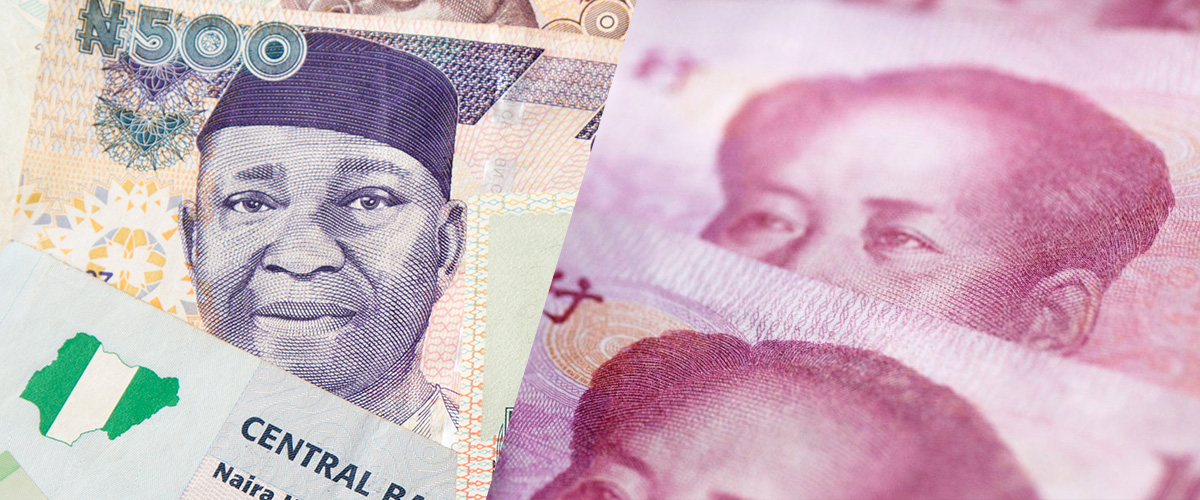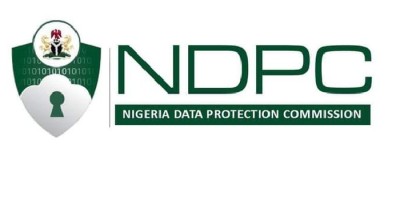Nigeria-China Currency Swap Agreement - A Good Deal For Nigeria?
Posted on Wed 27 Jun 2018
- Download Resource
The Central Bank of Nigeria (“CBN”), on June 6, 2018, issued the Regulations for Transactions with Authorized Dealers in Renminbi (“Regulations”). The Regulations provide the framework for implementing the Bilateral Currency Swap Agreement (“Currency Swap Agreement/ the Agreement”) which was concluded on April 27, 2018, at a ceremony in Beijing, China, between the Federal Republic of Nigeria (“Nigeria”) and the People’s Republic of China (“China”). The CBN and the People’s Bank of China (“PBoC”) executed the Currency Swap Agreement on behalf of their respective countries.
WHAT IS THE SWAP DEAL ABOUT?
The swap deal is an agreement with a three (3) year tenor which allows both the CBN and PBoC to swap a maximum amount of Fifteen Billion Renminbi/Chinese Yuan (CNY 15 Billion) for Seven Hundred and Twenty Billion Naira (NGN 720 Billion). This amount is equivalent to US$2.5 Billion using an exchange rate of NGN305: 1US$.
As provided in the Regulations, the Currency Swap Agreement was purposely executed to:
-
finance trade and investment between China and Nigeria;
-
maintain financial market stability; and
-
facilitate other connected purposes as may be agreed upon by both countries.
 Essentially, the Currency Swap Agreement seeks to create a platform that provides Naira liquidity to Chinese firms and investors looking to do business with Nigeria on the one hand; and also provides Chinese Yuan liquidity to Nigerian firms and investors looking to do business with China on the other hand. The Currency Swap Agreement is designed to aid trade transactions between China and Nigeria and remove the need to first source for the “greenback” (US Dollars) before payments for transactions involving the two countries can be made.
Essentially, the Currency Swap Agreement seeks to create a platform that provides Naira liquidity to Chinese firms and investors looking to do business with Nigeria on the one hand; and also provides Chinese Yuan liquidity to Nigerian firms and investors looking to do business with China on the other hand. The Currency Swap Agreement is designed to aid trade transactions between China and Nigeria and remove the need to first source for the “greenback” (US Dollars) before payments for transactions involving the two countries can be made.
Accordingly, both the CBN and the PBoC shall (subject to the maximum amount indicated under the Currency Swap Agreement), make available liquidity in their respective currencies for the facilitation and promotion of trade and investments between the two countries through the purchase, sale, and subsequent repurchase and resale of the Chinese Yuan against the Naira and vice versa. For this purpose, under the Currency Swap Agreement, the CBN may conduct bi-weekly Renminbi bidding sessions.
SYNOPSIS OF THE REGULATIONS
The Regulations stipulate the terms and conditions guiding the operation of the Currency Swap Agreement and make provisions in respect of: (a) eligibility criteria for Authorized Dealers to participate in the CBN bi-weekly Renminbi bidding sessions; (b) relevant documentation to be provided by the importer in order for an Authorized Dealer to make authorized Renminbi payments; (c) the medium through which the CBN would provide Renminbi to the market (i.e. bidding sessions or special retail or wholesale sessions); and (d) applicable charges which Authorized Dealers may earn for relevant transactions, among others.

Hence, by the Regulations,
-
all Authorized Dealers (Deposit Money Banks and Merchant Banks only) are henceforth required to open Renminbi bank accounts with a corresponding bank (either onshore or offshore China) and provide the CBN with the details;
-
Authorized Dealers shall not open domiciliary accounts denominated in Renminbi for customers;
-
importers that intend to import goods from China shall obtain pro-forma invoice denominated in Renminbi, as part of the documents required for the registration of “Form M”;
-
foreign exchange purchased in the window shall not be used for payments on transactions in which the beneficiaries are not domiciled in China;
-
Authorized Dealers shall utilize funds within 72 hours from the value date or return such funds to the CBN for repurchase at the apex bank’s buying rate;
-
bids shall be settled spot through a multiple-price book bidding process, and will cut-off at a marginal rate (which will be disclosed after the conclusion of a Special Secondary Market Intervention Sales (“SMIS”) process (i.e. retail process);
-
all Renminbi bid requests shall be treated by the CBN by debiting Authorized Dealers’ current account with the Naira equivalents;
-
transactions earlier classified as “Not Valid for Foreign Exchange” by CBN extant Circulars have the same status under the Regulations; and
-
modes of payment under the Currency Swap Agreement shall be in line with Memorandum 9 of the Foreign Exchange “(FX”) Manual.
Requirements of Memorandum 9 of the FX Manual
In line with Memorandum 9 of the FX Manual, documents submitted by participants at the CBN Renminbi bidding sessions shall comply with the following:
-
Letters of Credit transactions are to be undertaken in such a way that all negotiating documents and/or shipping documents are routed from the beneficiary/supplier through his/her bank to the issuing bank. Banks are therefore prohibited from endorsing or making payments in respect of documents which are not in compliance with the stipulated routing.
-
Bills for Collection transactions are to be carried out in a way that allows all necessary documents to be routed to the issuing bank either directly from the supplier’s bank or through the offshore correspondent of the issuing bank.
-
Transactions “Not Valid for Foreign Exchange” shall be conducted in a way that all supporting documents are routed by the supplier directly to the applicant’s bank that is responsible for validating the underlying “e-Form M”.
According to the Regulations, the CBN in order to maintain stability in the market may either conduct bi-weekly Renminbi bidding sessions for authorized dealers or choose to offer secondary market sales. The decision on direct sale at the market will depend on whether or not (in the opinion of the CBN) such a sale will produce an effective price for the determination of the NGN/CNY exchange rate. Where this is not likely to be the case, then the CBN reserves the right to choose to offer another Special SMIS session (retail or wholesale). However, no predetermined spread shall be allowed on FX Spot transactions executed through the CBN intervention but Authorized Dealers may earn charges on a customer’s bid of not more than Fifty Kobo (50K).
Furthermore, all Renminbi sales are valid for only trade-backed transactions while applicable levies on imports and exports shall continue to be paid by importers and exporters under the Currency Swap Agreement. Whilst the provisions of the Regulations can be amended by the CBN from time to time as may be deemed necessary, they are to apply alongside all existing Guidelines, Circulars and Directives on the operations of the Nigerian Foreign Exchange Market.
CONCLUDING REMARKS

The Currency Swap Agreement between Nigeria and China is significant in many respects.
The deal will allow trading between the two countries to be done directly in their local currencies without any need for the dollar, and enabling the Renminbi (Yuan) to flow freely within the Nigerian banking system. This development will improve bilateral trade between the two countries and engender foreign investment flows and economic cooperation beneficial to both parties. The significant cut on dollar demand by firms and investors doing business across the two countries will help protect their financial markets and boost their respective foreign reserves.
However, concerns remain as to the potency of the Currency Swap Agreement to fully address the challenge of dollar demand by importers, since imports from China account for only 20 percent of Nigeria’s annual total imports. The current annual import bill of Nigerian enterprises moving goods into the country from China reportedly stands at NGN 1.7 Trillion[1], meaning that the swap deal amount of NGN 720 Billion can only take care of about 15 percent of Nigeria’s annual total imports from China[2]. The remaining 85 percent will definitely still require dollars.
In spite of the concerns raised, we believe the Currency Swap Agreement is a step in the right direction. The reduction in dollar demand, expected to be achieved through the swap deal, will complement the CBN’s current intervention via the Investors’ and Exporters’ FX Window in deepening stability in the market, by curbing the incidences of dollar scarcity and exchange rate volatility. Also, we note that the NGN/CNY swap agreement will be particularly favorable to Nigeria’s foreign reserves which have been on a steady rise since some measure of stability returned to the country’s daily crude oil production and the international oil prices began a northward movement.
It is therefore our firm belief that the Naira will be positively impacted by the CBN-PBoC collaboration and that the Currency Swap Agreement is a good deal for Nigeria.
[1] See “Nigeria-China currency swap unlikely to improve value of naira”, BUSINESSDAY, 18 June 2018 at page 4 – http://www.businessdayonline.com/exclusives/article/nigeria-china-currency-swap-unlikely-improve-value-naira/
[2] Ibid
The Grey Matter Concept is an initiative of the law firm, Banwo & Ighodalo
DISCLAIMER: This article is only intended to provide general information on the subject matter and does not by itself create a client/attorney relationship between readers and our Law Firm. Specialist legal advice should be sought about the readers’ specific circumstances when they arise.













